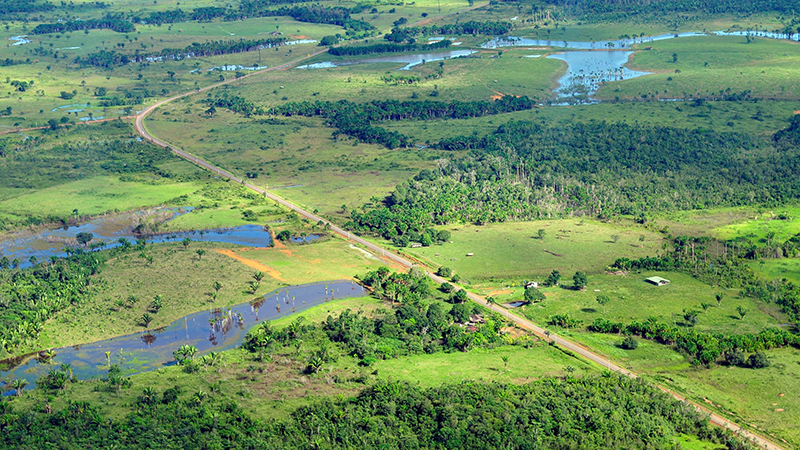Climate advocates are urging Brazilian president Michel Temer to veto a proposed rollback of protections for nearly 600,000 hectares of forest – an area twice the size of the US’ Yosemite national park.
Temer, embroiled in a corruption scandal, is due to decide by the end of the week whether to approve or reject the laws passed by Congress.
Under the proposals, the borders would be redrawn for the Jamanxim National Forest in the Amazon, neighbouring Jamanxim National Park and endangered Atlantic forest of São Joaquim National Park.
The Amazon Environmental Research Institute (IPAM) estimates the changes to Jamanxim National Forest alone could lead to 280,000 hectares of rainforest being cut down by 2030. That would release up to 140 million tonnes of carbon dioxide, equivalent to half of Spain’s annual emissions.
The Brazilian Forum on Climate Change, a consultative body presided over by Temer, has written to warn him of “dire consequences” if he allows the changes to go ahead.
A statement from the Forum’s Alfredo Sirkis criticised the “irresponsible action of a group of lawmakers” who altered text put forward by the government to radically expand the area affected.
Even parts of the farming lobby, which will be free to expand ranching and plantations if the environmental rules are relaxed, opposed the laws. A coalition of organisations including agribusiness giants Cargill, Monsanto and Amaggi said in an open letter the move would jeopardise efforts to control deforestation, harming the reputation of Brazil and the agricultural industry.
Up to $215m worth of international investment in the Amazon Region Protected Areas Programme is also threatened, the coalition said.
Report: Brazil’s pro-beef president Temer, betrayed by the industry he courted
After a decade of progress, forest clearance for logging, agriculture and mining in the Amazon has increased 60% in the last two years to 798,000 hectares in 2016. It puts the country off course for its domestic target of limiting the figure to 390,000 hectares by 2020.
Reducing deforestation in the world’s biggest rainforest is also central to Brazil’s contribution towards global efforts to tackle climate change. In its commitment to the Paris climate deal, the country pledged to end illegal deforestation in the Amazon and reduce emissions 43% from 2005 levels by 2030.
“The provisional measures now on the president’s desk not only take the country in the opposite direction of reducing emissions from deforestation, but also carry the risk of a cascade effect in other areas of the Amazon,” said Paulo Moutinho, senior researcher at IPAM.
Coming as president Donald Trump backtracks on US climate policies, the proposed weakening of forest protections provide “a disturbing indication that [Brazil] is moving in the same direction”, said Carlos Rittl, head of non-profit network the Climate observatory. “Brazil has been proud to be part of the solution to the climate crisis, but it has once again become part of the problem.”
